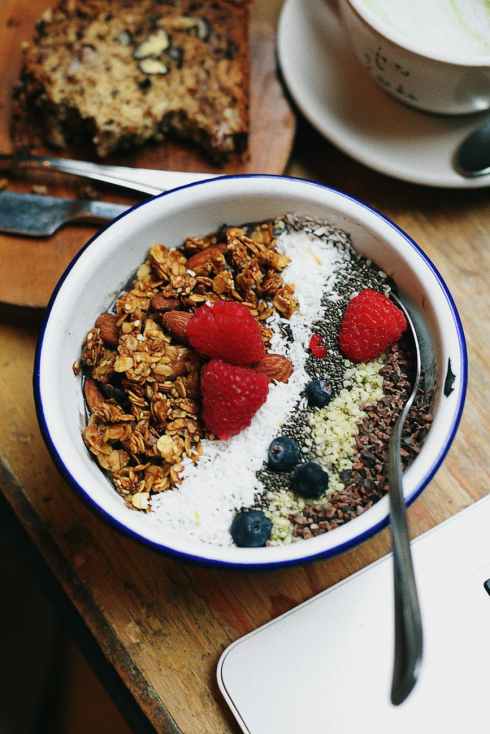Who eats breakfast before their morning workout?
Who eats a carb-rich breakfast before their morning workout?

Photo by Daria Shevtsova on Pexels.com
As a fitness instructor I get asked whether we should train on an empty stomach? Or if we had to eat, what should we eat? Normally I would advise a high protein/low G.I. food. Such as a protein shake, or a banana and some nuts.
It has also become “trendy” to follow and intermittent-eating plan, which means people would skip breakfast altogether whether training or not.
Now, a new study published in the Journal of Strength and Conditioning Research (Naharudin et al. 2019) has confirmed that eating breakfast makes a difference and improves your training performance
Using two resistance trials, the researchers tested how eating or not eating breakfast influenced muscular performance. Here are the results:-
Study Results
Compared with the breakfast trial, during the no-breakfast trial participants performed 10 fewer back squat repetitions over the four sets, for a decrease of 15%. Specifically, there were fewer back-squat repetitions in sets 1 and 2. Also, in the no-breakfast trial, the participants completed fewer bench press repetitions in sets 1 and 2, for a decrease of 6%. There were no differences between trials in sets 3 and 4.
Major Study Takeaway
From this study, it is clear that eating breakfast increases the force production output of morning resistance-training workouts. The researchers go further, suggesting that, for optimal muscle strength performance, the breakfast food should be high in carbohydrates. This leads to the next question:
Why is a high-carbohydrate meal optimum for morning resistance training?
Benefits of Carbohydrates Before a Morning Workout
An important fuel for optimizing resistance training performance is the glycogen in muscle. Glycogen is the stored form of glucose molecules that the body uses for bursts of energy, such as those needed in resistance training. The body breaks down or converts most carbohydrates into the sugar glucose. Glucose is absorbed into the bloodstream, and with the help of a hormone called insulin it travels into the cells of the body where it can be used for energy.
10 Facts About Breakfast
Here are 10 facts about breakfast from the data presented in a review article on the effect of breakfast on appetite regulation, energy balance and exercise (Clayton & James 2015).
- People who regularly skip breakfast tend to have higher BMIs.
- The prevalence of obesity-related chronic diseases, such as type 2 diabetes and coronary heart disease, increases in people who miss breakfast regularly.
- People who eat breakfast have healthier lifestyles.
- People who eat breakfast eat fewer snacks.
- Although people who omit breakfast tend to eat a little more at lunch, this increase does not fully compensate for calories missed at breakfast.
- People who exercise in the morning are encouraged to eat breakfast 1–4 hours before exercise to avoid any deleterious effects on the workout.
- During nighttime sleep, liver glycogen drops by about 40%.
- People who eat breakfast have a higher resting metabolic rate (i.e., burn more calories) in the morning than those who don’t.
- The breakfast meal typically equates to 20%–35% of daily energy requirements for adults.
- People who want to maximize their early-morning exercise performance—but do not wish to eat breakfast—may be able to improve their workouts by consuming a carbohydrate drink.



Leave a comment